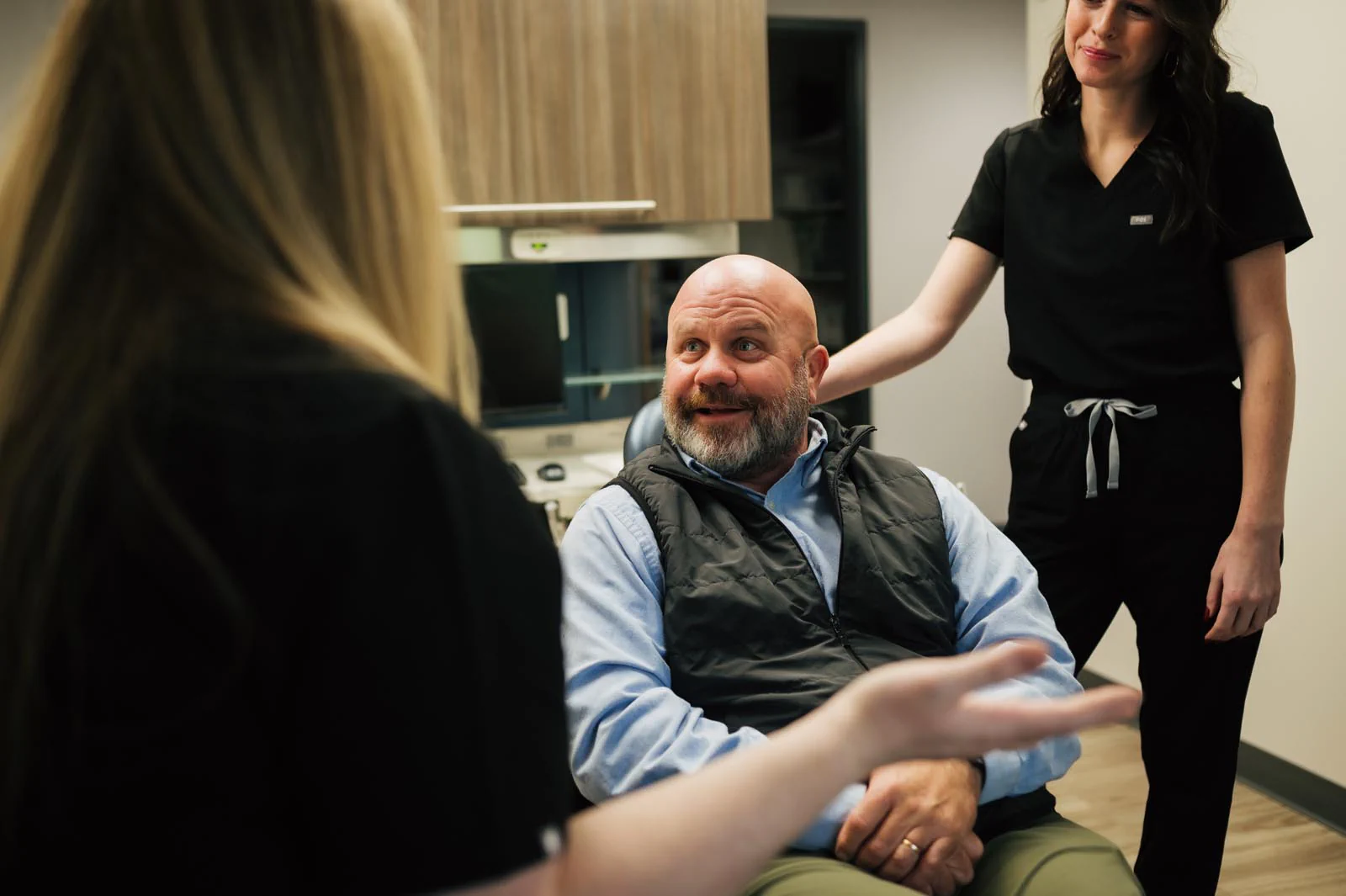Your Dental Team in Lebanon & Franklin, OH



Redefining the Dental Experience
At Family Dentistry, our focus is more than just teeth – we deliver care rooted in trust, integrity, and excellence. With comprehensive care under one roof, you will receive everything you need in a single, convenient location.
Our experienced team makes time to understand your unique goals and needs, creating personalized treatment plans that keep your smile healthy, beautiful, and confident for life.
OUR MISSION
At Family Dentistry Inc., we are not just about teeth—we’re about redefining the dental experience while maintaining our core values rooted in trust, integrity, and excellence. Our mission is to uphold a legacy of exceptional dental care that spans over 50 years, while embracing advancements in dental technology and practices. With a team of skilled professionals dedicated to breaking the mold and putting our patients first, we strive to deliver comprehensive, personalized, top-tier experience to every patient. Join us as we continue to set the standard for outstanding dental care and create confident, healthy smiles for life.

DEDICATED EXPERTISE
With years of trusted experience, our dental team combines expert skill with genuine care to create healthy, confident smiles. We proudly use state-of-the-art technology to ensure precise, comfortable treatments and the highest quality results. Most importantly, we take the time to truly listen—understanding your goals, concerns, and needs—so every visit feels personal, stress-free, and focused on your best possible dental experience.
OUR VISION
At Family Dentistry, our vision is to be the leading dental care provider in our community, recognized for our unwavering commitment to excellence, innovation, and compassionate care. We aspire to transform the dental experience by integrating cutting-edge technology with personalized service, creating an environment where every patient feels valued, heard and at ease. Through continuous learning and improvement, we aim to set the standard for exceptional dental care and to be the dental practice of choice for families seeking comprehensive, compassionate, and state-of-the-art dental services. Our goal is to cultivate lifelong relationships built on trust and integrity, ensuring optimal oral health and beautiful smiles for generations to come.

welcome to your dental home
For new patients, we make first visits simple, comfortable, and stress-free. From easy online scheduling and friendly team support to gentle, personalized care, every step is designed with you in mind. We take time to listen, answer questions, and ensure you feel confident about your dental health. With flexible payment options and clear communication, we make great smiles—and great experiences—accessible to everyone. Click below for more new patient resources.


EXCEPTIONAL SMILES
Whether it's time for your next checkup, you're experiencing oral health issues, or you want to enhance the appearance of your smile, we've got you covered. From preventive services that keep your teeth strong to advanced cosmetic and restorative treatments that improve your confidence, we provide everything you need for lasting oral health. Our compassionate team combines expertise with a gentle touch.
Services include checkups and cleanings, emergency care, pediatric dentistry, fillings, extractions, crowns, dental implants, veneers, teeth whitening, and more.

They never make you feel like you are just a number

"The staff is always so very welcoming and accommodating to myself and my family! Dr. Sarah always makes time to address any concerns and never makes you feel like you are just a number! Hands down the best!"
- Brandi S.
We can’t wait
to meet you
Call or request an appointment online to set up your first visit. We’ll be in touch soon.